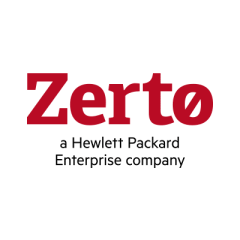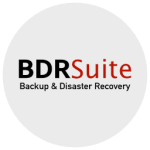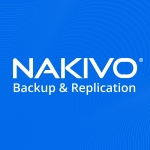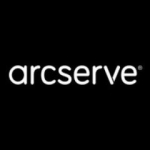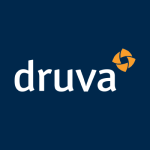What is our primary use case?
We are an electric utility and we have some pretty critical workloads. We have identified the most critical workloads in our environment and have implemented Zerto as a protective measure for them.
We try to keep our critical workloads protected, which are a subset of our systems. For example, we're not going to protect a print server with Zerto.
How has it helped my organization?
The fact that Zerto provides continuous data protection is key for us. We have tested on a regular basis, and in one case, we tested our entire ERP system. It is a pretty big workload that includes Linux servers, databases, and other components. It's about a 45-minute window to get it back up and running. For our test, we moved the entire system to our DR facility on a weekend, ran it for an entire week from the DR site, and then brought it back the following Sunday. It worked flawlessly.
What is most valuable?
I really like the 24-hour DVR-like rollback. For example, we had an issue a few years ago, when we still had an Exchange server on-premises. One of my staff came in for the morning to do vulnerability management, saw that some updates needed to be applied, applied the updates to the Exchange server, and it totally broke it. Everybody's email was down. To resolve things, we went to Zerto, rolled back to before the updates, and it was all done in less than five or 10 minutes. It was really quick. All of the email functionality was restored and it popped up and said, "Hey, you need an update." I said, "Please do not do that update." It was pretty good.
Zerto is easy to use and the interface is very intuitive. We have never had an issue with using it. We just have a one-man team to perform failbacks or workloads. It is very simple to do and during our test with the Exchange server, it was only a matter of a few clicks. It's always been an excellent product and they've only improved it over time. We're really pleased with it.
The integration with VMware is really good.
What needs improvement?
It would be nice if we were able to purchase single licenses for Zerto. As it is now, scaling requires that we purchase a multi-pack. It hasn't been a big deal for us but it would still be helpful to have a little bit more granularity on the license count.
The only timeline or limiting factor, in my opinion, is how long it takes to replicate. That all depends on your infrastructure, and we happen to be pretty fortunate that we have a nice pipe in between the two locations, between here and our DR site. If you don't have that limiting factor, it's just a matter of time. You just wait long enough for it to replicate over and then you're covered.
Buyer's Guide
Zerto
March 2025
Learn what your peers think about Zerto. Get advice and tips from experienced pros sharing their opinions. Updated: March 2025.
849,190 professionals have used our research since 2012.
For how long have I used the solution?
I have been using Zerto for approximately seven years.
What do I think about the stability of the solution?
We do the updates regularly and Zerto has never given us problems. We work with a lot of different technologies and we have a lot of problems, but Zerto has not been one of them.
What do I think about the scalability of the solution?
We haven't had much opportunity to explore scalability at this point. We're responsible for another organization's IT, as well. They're a sister company of ours and they're smaller than us, so we do all of their IT and we have them on Zerto. They're using us as a DR point.
From an expansion perspective, we scaled up from our initial install to include theirs as well, which I think we got pretty close to doubling our license count.
We are 100% deployed at this point. If we were ever to add another sister company, which is possible because we have other sister companies where opportunities may arise. A lot of the time, they're so small that they can't afford IT, so it's easier to have us manage it. In cases like this, we may have an opportunity to deploy Zerto.
We have a very small team of three people, so Zerto does not affect our headcount. There is me, who is the manager of IT or manager of information services. Then, we have our desktop technician, and then we have our network administrator.
How are customer service and support?
We have never had to use Zerto's technical support for anything major. Any time that we have had to contact them, it has been for minor stuff and it's worked out fine.
Which solution did I use previously and why did I switch?
A long time ago, when we had an EMC SAN, there was a VMware plugin that served as a replication solution. However, it was terrible and it never worked.
Zerto is a major upgrade that is easier to use and switching was excellent.
Replacing our legacy solution with Zerto has definitely saved us time and improved the quality of our process. I never felt like I could trust our previous solution, which was a big deal because when you're talking about backups, trust is a major factor. You have to be able to trust your solution and feel like it's going to work in a bad situation.
Zerto is one of those things that you love to have but you hate to have to use because it means that something bad is going on. That said, if there are serious problems then you want to have something that's rock solid. For us, that's Zerto, and we feel strongly about that.
How was the initial setup?
The initial setup was very straightforward. We had some training with some Zerto engineers on how to set up the recovery groups and other things, but once that was set up, we made several changes later on as we played with it. Overall, it was very straightforward to configure and I think that we only had an hour of training.
The deployment took us a couple of weeks to get everything figured out, although it wasn't necessarily Zerto that was the hold-up. We only had a certain number of licenses, perhaps 15 in total. We spent time trying to determine which were our critical workloads, and there was some internal debate about it. From the Zerto perspective, there weren't a lot of issues.
It didn't take a lot of time, just a couple of weeks to get us up and going. We were actually up and technically running within that same day, but to truly boot it and get it where it needed to be, it took a couple of weeks. It was a new technology to us at the time, so it took a while to get up to speed with it.
In terms of our implementation strategy, we just tried to identify the critical workloads, find the ones that really needed to be protected and start to make those recovery groups. Then, we organized them in such a way that things worked properly. For example, the components of our ERP system do have to come up in a certain order. Finding all of that stuff out and fine-tuning the process was part of our strategy. Then, we slowly started moving those workloads across. We broke it down into groups and we did those groups one at a time until the implementation was complete.
What about the implementation team?
Our in-house team was responsible for implementation.
Maintenance-wise, we just keep it updated. Our network administrator applies the updates and checks the health from time to time. We have a dashboard on our big screen if we feel the need to monitor it. If we walk by and it looks like a protection group is in the red or yellow, then we look at what needs to be done to get the problem straightened out.
What's my experience with pricing, setup cost, and licensing?
Price-wise, it's right in line with what we would figure. For what you get for it, it's really a good value, and we've never had any problem renewing it or anything like that.
License-wise, we budgeted $1,000 per VM. The minimum spend on it, in the beginning, can sometimes be a little bit of a headache for people, and they might have to budget creatively to get there, but once you're there, the renewals are worth it.
Licensing requires purchasing packages that consist of several licenses, and they cannot be purchased one at a time.
We paid for an hour of training that we took but otherwise, there have been no costs in addition to the standard licensing fees.
Which other solutions did I evaluate?
We began looking at Zerto for several reasons including the cost, ease of use, and really, the flexibility of it. When you want to switch it over and do a different workload, it's not that big of a deal.
When we first began to consider using Zerto, we had a discussion with a grocery chain that is close to us. It's a specialty grocery chain and they have exotic foods sold out of two different locations. Christmas is their busiest time of year and they have several cash registers at each location doing transactions constantly.
They had to use Zerto during the middle of that Christmastime rush and failover, from one site to the other, all of their point of sale systems. They never lost a penny in transactions. For us, that was a big testimonial. They have a similar size of environment to ours as far as server infrastructure goes, so we didn't even look at anything else.
What other advice do I have?
At this time, we don't use Zerto for long-term data retention. Instead, we have some other technologies in place for that. We have Veem and we have some SAN replication and we have some network-attached storage, as well. We use Zerto as our first line of defense. For example, in response to a ransomware attack, we would use Zerto for sure to roll back before that event happened.
We have not had a ransomware attack, at least not yet. We fully expect that, if it ever does happen, we'll definitely utilize Zerto. It is essentially our insurance policy. If we ever have a ransomware incident, that would be our first line of defense to recover from it. In fact, we really haven't had many opportunities to use Zerto, thankfully. Zerto is one of those things that are great, and we're glad we have it, but you hope we never have to use it.
At this time, everything we do is on-premises but having DR in the cloud with Zerto is definitely something that we want to do in the future.
It is not important to us that Zerto offers both backup and DR functionality. For backup, we have it covered in other ways. Being in the utility business, we're very big on redundancy. In fact, we have backups to cover the backups and we have about five different levels of them that we utilize. Zerto covers the front line, and when something bad happens, we can roll back within a 24-hour period using it. Then, we have deeper levels handled by other products like Veeam. Funnily enough, Veeam kept telling us that they would add Zerto-like features, and at the same time, Zerto kept telling us that they would add Veeam-like features. We continue to use both of them.
I've recommended Zerto to several IT professionals that I've talked to because it's such a good product. I give them examples of what we have done.
Overall, it's a fantastic product.
I would rate this solution a ten out of ten.
Which deployment model are you using for this solution?
On-premises
Disclosure: PeerSpot contacted the reviewer to collect the review and to validate authenticity. The reviewer was referred by the vendor, but the review is not subject to editing or approval by the vendor.

